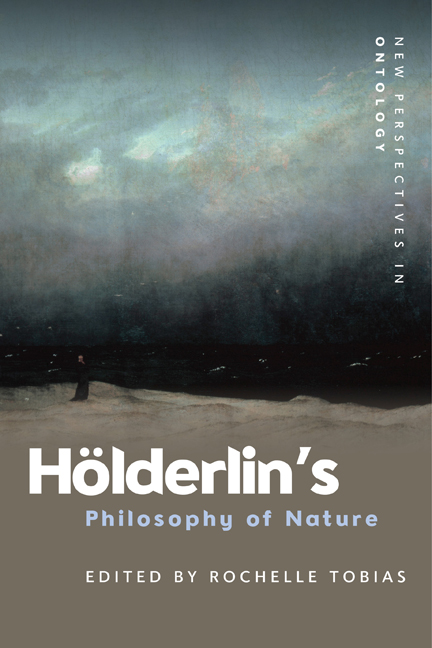4 - The Order of the Unbound: Time and History in Hölderlin’s ‘The Titans’
Published online by Cambridge University Press: 08 October 2020
Summary
Time and history
The first stanza of Friedrich Hölderlin's poem ‘Mnemosyne’ contains the following lines that have elicited much scholarly commentary: ‘And always / There is a yearning that seeks the unbound’ [Und immer / Ins Ungebundene gehet eine Sehnsucht](Poems and Fragments, 519; StA II, 197). They seem to fit seamlessly into Hölderlin's distinction between Greek and Hesperian poetry: whereas the art of the Greeks, according to Hölderlin, consisted in a progression from limitless nature to palpable depiction in the finite and limited forms of art, Hesperian art moves in the opposite direction, proceeding from an artistic skill of representation [Darstellungsgabe] and culminating in the aorgic flux of nature. The modern poet, in this schema, therefore faces the task of reversing the tendency towards limitation that dominates Greek art, and thus of releasing its bound elements in order to pave the way for a new and autonomous form of art.
A striking feature of Hölderin's late poems in this context is how they set these unbound elements into relation with the older order of the Titans. This occurs in ‘Mnemosyne’, for instance, when Hölderlin links the unbound – as the object of yearning – to an image of the Titans: ‘For crookedly / Like horses go the imprisoned / Elements and ancient laws / Of the earth’ [Nämlich unrecht, / Wie Rosse, gehen die gefangenen / Element’ und alten / Gesetze der Erd] (Poems and Fragments, 519; StA II, 197). In speaking of the ‘imprisoned elements’ and the ancient laws of the earth, Hölderlin alludes to the reign of the Titans. In contrast to the Olympians, the Titans – as Hesiod's Theogony had demonstrated – embodied a prior order that the Olympians would overcome and replace. Hölderlin leaves no doubt here that the Titans represent a hostile and destructive force: He refers to their path as ‘crooked’. Nevertheless, a paradox persists: Hölderlin's structural opposition of Greek and Hesperian poetry would seem to demand that one turns towards this unbound force – or, more precisely, this force of the unbound – in order to achieve a form of freedom unknown to antiquity. At stake therefore is a scenario which Hesiod’s Theogony summoned only in order to ward it off as something terrifying, namely the notion that, more than simply marking a beginning, the reign of the Olympians might signal an ending in time, one that coincides with the Titans’ liberation.
- Type
- Chapter
- Information
- Hölderlin's Philosophy of Nature , pp. 58 - 72Publisher: Edinburgh University PressPrint publication year: 2020

